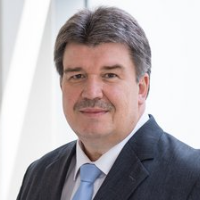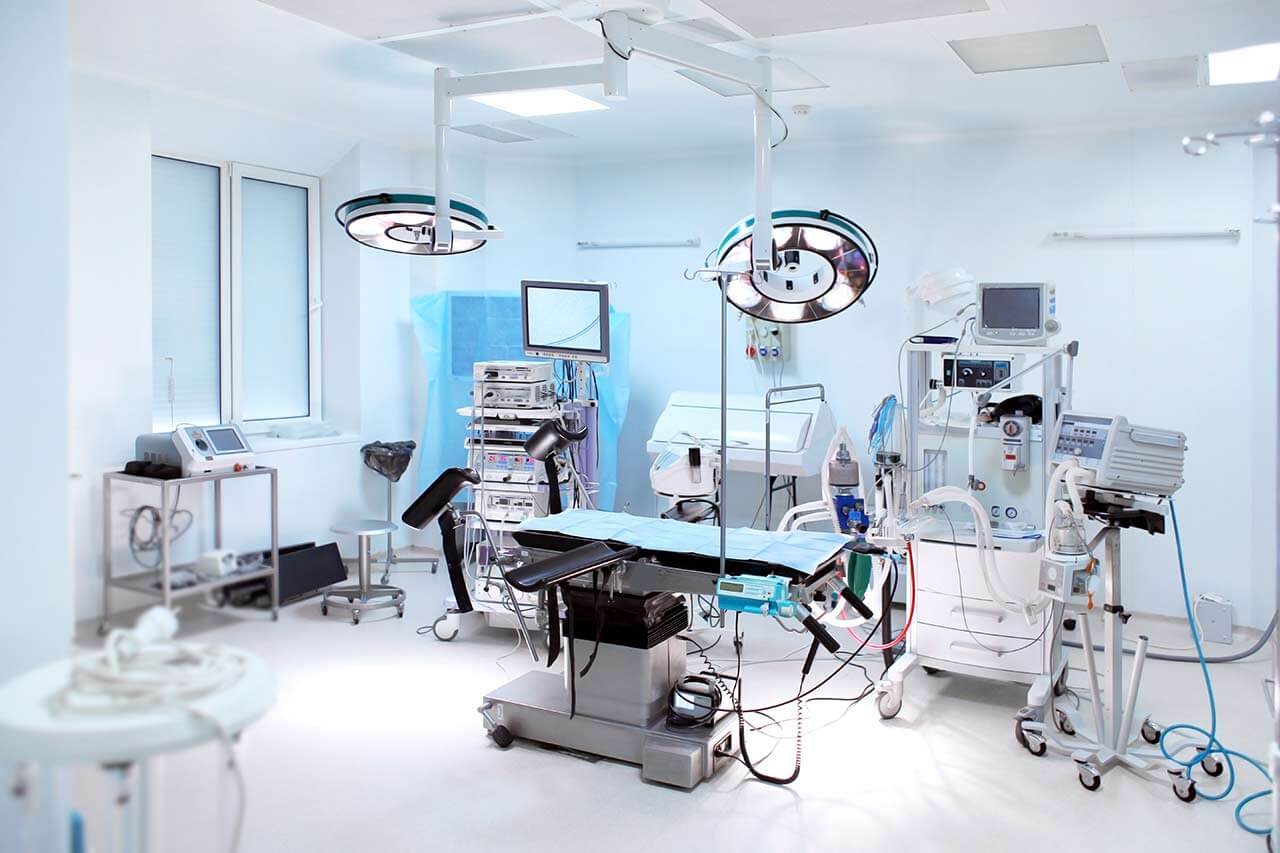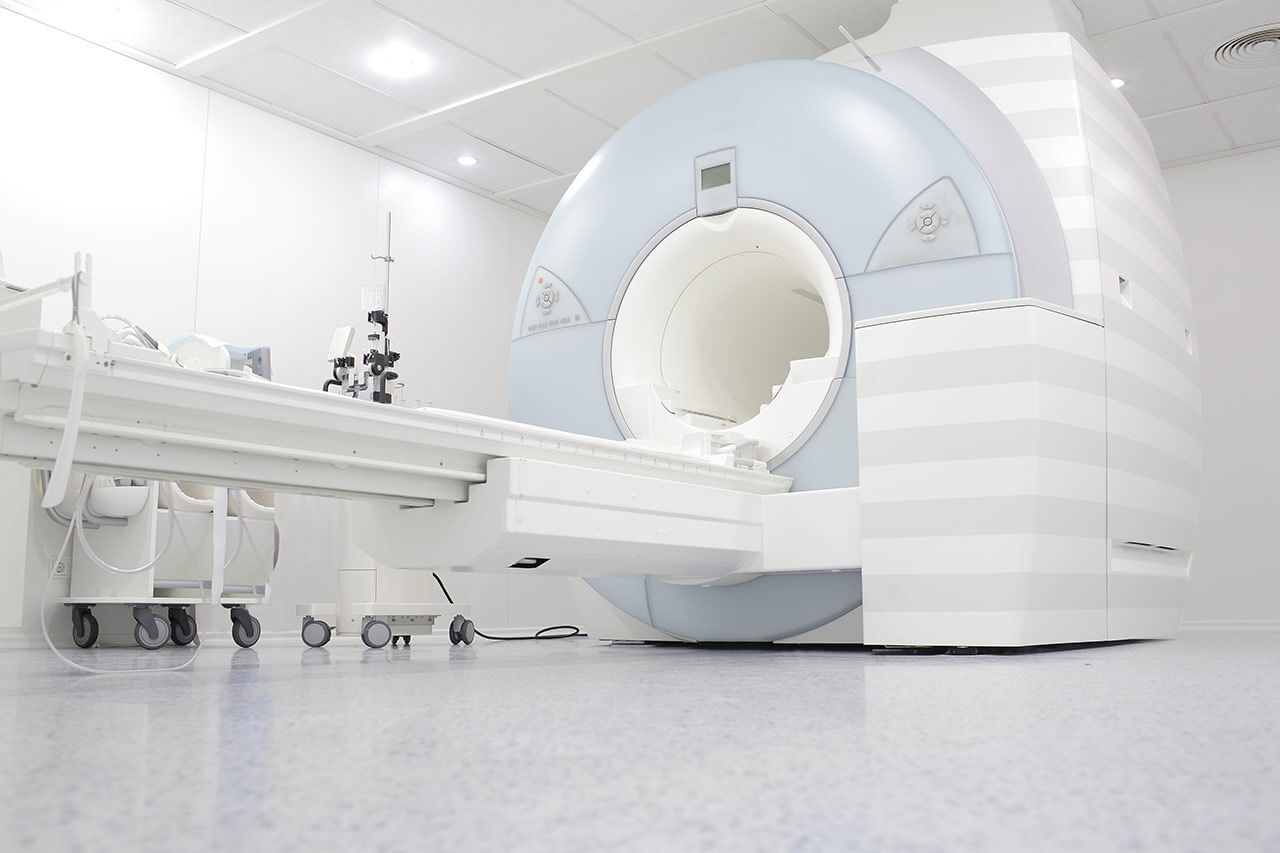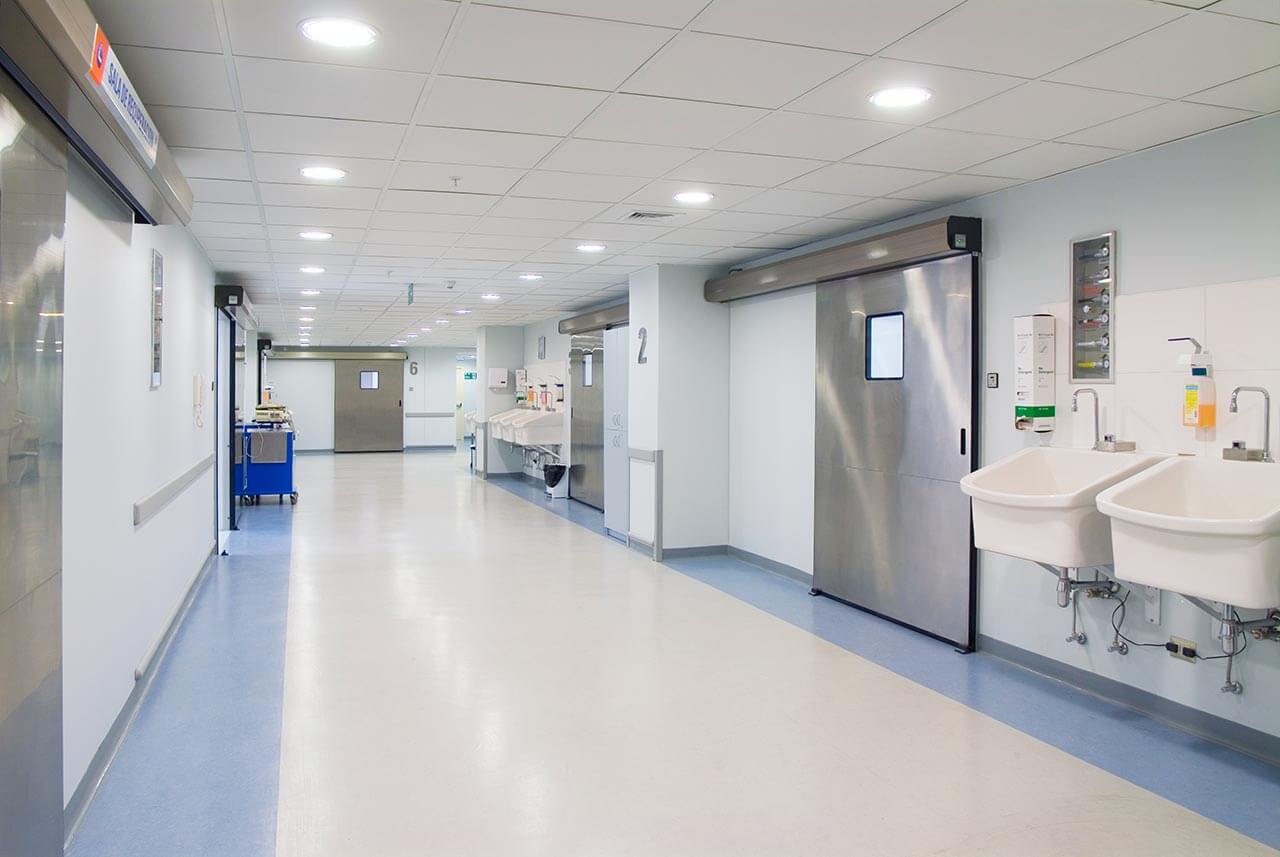
The program includes:
- Initial presentation in the clinic
- Case history taking
- Review of medical records
- General physical examination
- Laboratory tests:
- Complete blood count
- General urine test
- Biochemical blood test
- Inflammation markers
- Blood coagulation test
- Immune status
- Analysis for infections
- Hormone levels:
- FSH
- LH
- Androgens
- Progesterone
- Prolactin
- TSH-basal, fT3, fT4
- Ultrasound examination of abdomen and small pelvic organs
- Transvaginal ultrasound examination
- Gynecological examination
- Examination of the men:
- Spermogram
- Urethral smear analysis
- Tests for infections
- Hormonal stimulation
- In vitro fertilization (IVF)
- Nursing services
- Consultation of related specialists
- Treatment by head doctor and all leading experts
- Explanation of the individual treatment plan
All aspects of the program can be discussed with a medical advisor.
How program is carried out
You arrive in the hospital on the 19th day of the menstrual cycle. Our service starts at the airport. Our employee meets you at the airport and holds a sign with your name. In the individual folder you will find detailed information about the program.
The reproductologist will start from the general examination, you will undergo a number of laboratory and instrumental tests. After that, the doctor will elaborate an individual treatment plan, determine the drug dosages. You will receive a detailed explanation of all the procedures and will be able to contact your doctor for advice at any time.
For your convenience, we offer hotels or apartments within walking distance of the hospital. After the first appointment, you will have free time to rest. You can take the prescribed medications on your own or in the hospital. Also, several times, on the appointed days, it will be necessary to have an ultrasound examination (up to 3 times).
Stages of treatment
Blockage. On days 20-21 of the menstrual cycle, the pituitary gland is blocked with GnRH agonists. The purpose of the drug administration is to suppress ovarian function and stimulate maturation of more oocytes.
Ovarian stimulation. On the 2-4th day of the menstrual cycle, active stimulation of the ovaries with gonadotropins under constant ultrasound monitoring begins. It takes 10-14 days on average. An ultrasound examination is required to assess follicular growth. When the follicle is mature enough, a trigger injection is given.
The doctor will appoint the day of visiting the clinic. The time of oocyte collection (puncture) is determined. 36 hours before the puncture, a woman makes a stimulating (trigger) injection of hCG (human chorionic gonadotropin).
Egg collection. In the hospital, the follicles are punctured with the collection of mature eggs (on the 12-15 day of the menstrual cycle). The husband of the patient, on his turn, collects the ejaculate. The ejaculate can be collected naturally, or by a puncture of the testicle (in azoospermia, obstruction of the vas deferens in men – the ICSI procedure).
Fertilization. 2-6 hours after egg collection, eggs are fertilized with the husband’s sperm. This is a laboratory procedure and no patient involvement is required.
Embryo culture. Fertilized eggs will be cultured for 1-5 days. According to patients’ needs and embryo status, best 1-3 embryos can be transferred to the womb.
Preimplantation genetic diagnosis. PGD is usually performed on day 3. It takes 1 day to receive the results. One or two cells from the embryo can be taken without harming it, and some genetic tests can be done in one or two days.
Embryo transfer. This procedure is painless and no anesthesia is required, although some patients need sedation. One hour after the procedure, patients can leave the clinic and can return home on the same day.
Pregnancy test. This test can be done 14 days after the embryo transfer.
Service support
We fully support your trip, regardless of the chosen program. We provide an individual medical coordinator and interpreter, help with choosing and booking a hotel, booking tickets, preparing medical reports.
Required documents
- Medical records
- Results of hormone blood tests (if available)
- Pelvic ultrasoud (if available)
Service
You may also book:
 BookingHealth Price from:
BookingHealth Price from:
About the department
The Department of Reproductive Medicine and Andrology at the University Hospital Halle (Saale) offers a full range of medical services in its areas of specialization at the highest level of university medicine. The department provides qualified medical care for patients with infertility, impaired sex hormone synthesis, and sexual disorders, including erectile dysfunction. A unique service of the department is egg and sperm cryopreservation for delayed pregnancy planning, for example, after oncopathology. The main focus of the department's physicians is the treatment of infertility using modern assisted reproductive technologies, the most popular of which are intrauterine insemination, in vitro fertilization, and intracytoplasmic sperm injection. The health of patients is in the safe hands of a highly professional medical team, consisting of experienced gynecologists, endocrinologists, andrologists, and experts in reproductive medicine. Most of the diagnostic and therapeutic services of the department are provided on an outpatient basis without mandatory hospitalization. The medical facility is a member of the German Society for Reproductive Medicine (DGRM) and the German Society of Andrology (DGA), so the standards of medical care prescribed by these societies are strictly followed here. The Head Physician of the department is Prof. Dr. med. Hermann Behre.
The main focus of the department's specialists is the treatment of infertility in women and men. Infertility is diagnosed when a couple is unable to conceive a child after 12 months of regular sexual intercourse without the use of contraception. The therapeutic process begins with a comprehensive diagnosis, which includes an analysis of the medical history of both partners, extensive laboratory tests, gynecological and urological examinations, and ultrasound scans; men also undergo a spermogram, a test to assess the quality and quantity of sperm. Based on the results of the preliminary diagnosis, the reason for the inability to conceive a child is determined: pregnancy may not occur due to female factor infertility (for example, decreased egg quality due to age-related changes, anovulatory cycle, fallopian tube obstruction, uterine fibroids, endometriosis, etc.), male factor infertility (for example, insufficient sperm production, impaired sperm transport through the vas deferens, or azoospermia), or a combination of both. Before starting the treatment, the doctors of the department conduct an individual consultation with the couple, during which they explain the possible treatment options, their advantages, and the prognosis for the desired pregnancy, after which a joint decision is made on the best option.
When infertility is diagnosed against the background of menstrual disorders in women, the department's reproductive medicine specialists use only a course of drug treatment. In more complex clinical situations, the specialists of the medical facility often resort to assisted reproductive technologies, among which intrauterine insemination (IUI), in vitro fertilization (IVF), and intracytoplasmic sperm injection (ICSI) are particularly effective. Intrauterine insemination is a procedure in which specially prepared sperm are introduced into the uterine cavity. The therapeutic manipulation is performed during ovulation, which can be stimulated either with hormonal drugs or naturally. A prerequisite for the IUI procedure is that the fallopian tubes are patent. In case of tubal patency problems, ovulation disorders, or poor sperm quality of the partner, in vitro fertilization (IVF) is more appropriate. The essence of IVF is that the fertilization of an egg by a sperm occurs outside the woman's body, in a laboratory. IVF begins with hormonal stimulation of the ovaries to obtain multiple oocytes, after which the mature oocytes are retrieved by follicular puncture, fertilized in the laboratory, and transferred into the uterine cavity to achieve pregnancy. The IVF method can be indicated for both female and male infertility. The success rate of IVF treatment is quite high, as 35-40% of patients become pregnant at the first attempt. The department also offers intracytoplasmic sperm injection (ICSI), a type of IVF in which a mature sperm is artificially introduced into a mature egg. This technique is used in cases of severe male factor infertility, when independent fertilization with sperm is difficult or impossible for various reasons.
An integral part of the department's daily clinical practice is the diagnosis and treatment of hormonal disorders in women such as menstrual irregularities, hirsutism (excessive facial or body hair growth), premenstrual syndrome, hyperprolactinemia, and ovarian exhaustion syndrome. The department also has extensive experience in treating men with hypogonadism, a condition in which testosterone levels are low due to insufficient testicular function. The department's specialists perform testosterone replacement therapy to treat this condition.
The department also successfully treats sexual disorders in both men and women. Of particular interest in this area is treatment for men with erectile dysfunction (impotence). This andrological disease affects the ability to achieve or maintain an erection necessary for sexual intercourse. During the diagnosis of suspected impotence, doctors analyze the patient's medical history and perform laboratory tests, cavernosography, ultrasound scans, and psychological tests. In most cases, psychotherapy and drug treatment are sufficient to normalize erectile function. However, in the clinical practice of the doctors of the department, there are also complex cases of impotence that require vacuum therapy, intracavernosal injections, and phalloprosthetics (an operation in which the cavernous bodies of the penis are replaced by special implants).
The main clinical focuses of the department are as follows:
- Diagnostics and treatment of infertility
- Therapeutic offer for women
- Hormonal stimulation to normalize the menstrual cycle in order to achieve regular ovulation and prepare the uterus for pregnancy
- Minimally invasive removal of benign tumors (uterine fibroids, endometrioid cysts, dermoids, etc.) and laparoscopic removal of adhesions
- Assisted reproductive technologies
- Intrauterine insemination (IUI)
- In vitro fertilization (IVF)
- Intracytoplasmic sperm injection (ICSI)
- Therapeutic offer for men
- Drug stimulation for normalization of hormonal levels
- Antibiotic therapy for inflammation of the testicles, epididymis, prostate gland, and seminal vesicles
- Therapeutic offer for women
- Diagnostics and treatment of hormonal imbalances
- Diagnostics and treatment of hormonal imbalances in women
- Diagnostics and treatment of menstrual disorders
- Diagnostics and treatment of hirsutism
- Diagnostics and treatment of premenstrual syndrome
- Diagnostics and treatment of hyperprolactinemia
- Diagnostics and treatment of premature ovarian failure
- Diagnostics and treatment of hormonal imbalances in men
- Diagnostics and treatment of hypogonadism
- Diagnostics and treatment of hormonal imbalances in women
- Diagnostics and treatment of problems in sexual life in men and women
- Diagnostics and treatment of erectile dysfunction in men
- Medical care for psychosexual problems
- Medical care for transsexualism
- Germ cell cryopreservation
- Oocyte deep freezing (pronuclear stage) after successful in vitro fertilization
- Sperm cryopreservation in case of poor initial data before planned IVF or ICSI
- Sperm deep freezing and storage to preserve fertility when radiation/chemotherapy is required for cancer
- Testicular tissue cryopreservation before sperm extraction (TESE) and ICSI in the presence of azoospermia
- Ovarian tissue or oocyte cryopreservation for oncological diseases in women who want to have children in the future
- Other medical services
Curriculum vitae
Higher Education and Professional Career
- 1980 - 1987 Medical studies, Westphalian Wilhelm University of Muenster; internships at the Middlesex Hospital Medical School (London, UK), the University of Washington School of Medicine (Seattle, WA, USA), and Harvard Medical School (Boston, MA, USA).
- 1987 Medical license.
- 1987 - 1988 Max Planck Fellowship at the Clinical Research Group for Reproductive Medicine in Muenster.
- 1988 Thesis defense, summa cum laude, and doctorate.
- 1988 - 2000 Senior Physician, Institute for Reproductive Medicine in the Department of Gynecology and Obstetrics at the University Hospital Muenster; Associate Professor, Westphalian Wilhelm University of Muenster; Head of the Section for Infertility Treatment with Assisted Reproductive Technologies at the University Hospital Muenster.
- 1995 Habilitation and Venia legendi in Andrology and Reproductive Medicine, Faculty of Medicine, Westphalian Wilhelm University of Muenster.
- Since 2000 Professor, Faculty of Medicine, Westphalian Wilhelm University of Muenster.
- Since 2007 Head Physician, Department of Reproductive Medicine and Andrology, University Hospital Halle (Saale).
- Since 2007 Chairman of the Ethics Committee of the Faculty of Medicine of the Martin Luther University Halle-Wittenberg.
Qualifications
- Board certification in Gynecology and Obstetrics.
- Board certification in Urology and Andrology.
- Specialization in Gynecological Endocrinology and Reproductive Medicine.
Clinical Interests
- Application of modern assisted reproductive technologies: in vitro fertilization (IVF), intracytoplasmic sperm injection (ICSI), and testicular sperm extraction (TESE).
- Recombinant hormone therapy for infertility in hypogonadotropic hypogonadism.
- Modern methods of testosterone replacement therapy for hypogonadism.
Clinical Interests
- Single nucleotide polymorphisms of gonadotropins and gonadotropin receptors and their relevance in the treatment of infertility.
- Optimization of ovulation induction protocols using assisted reproductive technologies.
- Molecular causes of infertility in men and women.
Memberships in Professional Societies
- German Society for Reproductive Medicine (DGRM).
- German Society of Andrology (DGA).
- German Society for Gynecology and Obstetrics (DGGG).
- Working Group of the Centers for Reproductive Medicine at the University Hospitals of the German Society for Reproductive Medicine (DGRM) and the German Society for Gynecology and Obstetrics (DGGG).
- German Society of Endocrinology (DGE).
- European Academy of Andrology (EAA).
- European Society of Human Reproduction and Embryology (ESHRE).
Photo of the doctor: (c) Universitätsklinikum Halle (Saale)
About hospital
According to the prestigious Focus magazine, the University Hospital Halle (Saale) is one of the best medical institutions in Germany!
The history of the hospital goes back more than 300 years, and during this time it has managed to gain an excellent reputation not only in Germany, but also throughout the world. The hospital positions itself as a specialized healthcare facility for the treatment of severe and rare diseases and injuries. The hospital provides medical care to patients of all ages in compliance with the latest scientific achievements. The hospital is distinguished by successful research activities, especially in the field of cardiovascular diseases and oncopathologies – the specialists in these areas have made significant contributions to the development of the very latest diagnostic methods and therapeutic approaches.
The University Hospital Halle (Saale) has 30 specialized departments representing almost all areas of modern medicine, as well as 17 narrowly focused institutes. About 35,000 patients receive qualified medical care of European standards in the hospital every year, and more than 212,000 patients are served on an outpatient basis. This number of patients is evidence of the high efficiency of medical services and the excellent image of the hospital in the international medical arena; patients from all over the world regularly seek medical attention here.
Some of the hospital's structural units deserve special attention. For example, the Central Emergency Department (the largest in Saxony-Anhalt), modern dental clinics, the Perinatal Center, and the Transplant Center, which has a history of more than 40 years. The Transplant Center performs more than 40 kidney transplants annually, most of them from living donors.
Thanks to the use of the latest medical technologies and the availability of state-of-the-art equipment, many previously high-risk surgeries and procedures can now be performed in the hospital using sparing techniques. In this context, hybrid cardiac surgery and robotic surgery using the innovative da Vinci Si® system in urology are worthy of mention.
An integral part of the successful clinical practice of the University Hospital Halle (Saale) is the availability of experienced and competent medical staff. The total number of employees at the hospital is more than 4,450. Many physicians are known far beyond the borders of Germany: they regularly conduct important research that enables the development of modern medicine. In addition, the hospital specializes in training medical students, so qualified doctors and professors are willing to pass on their experience to the younger generation.
The hospital has many quality certificates such as DIN EN ISO 9001:2015 certificate, German Cancer Society (DKG) certificate, JACIE certificate, EndoCert certificate, ClarCert certificate, German Spine Society (DWG) certificate, German Trauma Society (DGU) certificate, CERT iQ certificate, LGA InterCetert certificate, and others.
Photo: (с) depositphotos
Accommodation in hospital
Patients rooms
The patients of the University Hospital Halle (Saale) stay in comfortable single, double, and triple rooms with a modern design. All patient rooms have an ensuite bathroom with a toilet and a shower. The standard patient room includes a comfortable automatically adjustable bed, a bedside table, a wardrobe, a table and chairs for receiving visitors, a TV, a radio, and a telephone. The patient rooms have access to Wi-Fi. For safety reasons, the use of laptops and cell phones is prohibited in some areas, including the intensive care units. The hospital also offers enhanced-comfort patient rooms.
Meals and Menus
The hospital offers delicious and well-balanced meals three times a day: breakfast, lunch, and dinner. Patients and their companions can choose from three daily menus, which always include dietary dishes. If necessary, an individual menu can be prepared for the patient. Children are offered a special menu with healthy and tasty dishes, rich in nutrients necessary for a growing body.
Further details
Standard rooms include:
![]() Toilet
Toilet
![]() Shower
Shower
![]() Wi-Fi
Wi-Fi
![]() TV
TV
Religion
Religious services are available upon request.
Accompanying person
Your accompanying person may stay with you in your patient room or at the hotel of your choice during the inpatient program.
Hotel
Your accompanying person may stay with you in your patient room or at the hotel of your choice during the inpatient program.




